I have significant concerns looking at the photos, and for the Op going to try and explain it longhand
A garage that is that careless with pressures has probably put the wheels back on with wrong torque too, an extra burst with a air gun is not professional way, instead of a correctly using torque wrench. (correct torque will be in your handbook, something like 110-120 Nm)
The little marks appear to be from stones, however from the tread patterns they also appear to be summer tyres (an odd choice in November when weather is getting too cold for summer tyres to grip) rather than all season (all year) or winter tyres. But maybe customer was offered some deal without the season being mentioned and they offered something inappropriate for time of year and UK climate.
Looking at them, I am not convinced they are brand new tyres, and think they are a set of nearly new that came off another car, if that owner sensibly changed to all season tyres, or offloaded them due to damage. New tyres have certain amount of shiny tyre mould release residue (which soon scrubs off), and coloured lines to help fitters putting them on rims. I cannot see that in the photos.
Check the date code. There is a 4 digit number on the side near the rims, first two digits are week number, second two are year, so for instance a tyre showing 3322 would be week 33 (August) in 2022. Too many months ago, and although legally could be new tyres, they not the latest stock.
Just in case you are wondering why new cars come with summer tyres, (rather than all season tyres suitable for UK climate) it is because they give marginally better fuel consumption and lower emissions when doing WLTP tests (world standard tests), but these tests are done at something like +21c or +23c which is of course much higher than average day and night temperature in UK. In reality summer tyres performance (grip) falls off sharply below about +10c, and don’t grip well in cold rain. Below about +5c and tyres will be poor in wet, and hopeless in sleet, frost and snow. The assumption is owners will switch to winter (cold weather) tyres November-March or fit all season (sometimes called 4 season) tyres and use those all year. European winter tyres are for cold weather, cold rain and some snow, do not confuse them with snow tyres (in Europe usually called Nordic winter tyres) which are for areas with months of lying snow.
Everyone knows rubber gets soft and sticky when warm and hard when cold, so a tyre has an ideal temperature range, to widen this various compounds adding silica, polymers etc are needed. It is harder and costs more (as need more complicated compounds) to make a tyre that does this and has good wear resistance too. Budget tyres will normally not grip well, or wear fast so are false economy as need replacing more often. You simply can’t make a cheap all season tyre (the required compounds cost too much). So look for upper mid range to premium for safe tyres.
I would not ever use that garage again, their practices do not put customer safety first. If they didn’t advise that fitting summer tyres at start of winter is stupid then not considering safety. Remember tyres are only thing that keeps you on the road in a corner, or if you need to brake in an emergency. If tyres don’t grip then you will probably crash (and might injure or kill a pedestrian or cyclist).
But as you need to go back, ask them specifically what tyre pressure and wheel nut torque they will use, and watch them. Unless they were sold as nearly new tyres I would want an explanation of why they appear used. They might then do job properly. (Tyre pressures are often on a label inside fuel filler, or on front door pillar (might be passenger side). Might get 2 or 3 different pressures (with 2 people, with luggage, and eco setting). Front and back wheels pressure might be different. The eco numbers often confuse, treat as for cruising to your holiday villa in dry summer weather, not for winding wet UK B roads, or simply ignore it. Tyre pressure will change with temperature so set when tyres are cold, not after a long journey.
For future reference, summer tyres are optimised for about +7c to +33c, all season for about -4c to 21c, winter below about +13c. Varies a bit by brands, and will happily work outside these ranges, but with diminishing grip as get further away from ideal temperatur range. Note road surface and air temperature are not always same so don’t get too hung up with detail. But it should be obvious get lot more mornings below +5c than days with temperatures of over 30c in UK
Hope this gives you bit of knowledge.
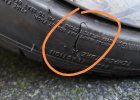 Screenshot_20221126_003436_com.android.gallery3d_edit_1076631630003944.jpg282.4 KB · Views: 93
Screenshot_20221126_003436_com.android.gallery3d_edit_1076631630003944.jpg282.4 KB · Views: 93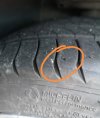 Screenshot_20221126_003428_com.android.gallery3d_edit_1076545102195103.jpg306.1 KB · Views: 99
Screenshot_20221126_003428_com.android.gallery3d_edit_1076545102195103.jpg306.1 KB · Views: 99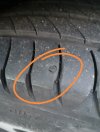 Screenshot_20221126_003348_com.android.gallery3d_edit_1076604708521657.jpg409.7 KB · Views: 97
Screenshot_20221126_003348_com.android.gallery3d_edit_1076604708521657.jpg409.7 KB · Views: 97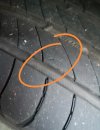 Screenshot_20221126_003409_com.android.gallery3d_edit_1076664770584148.jpg366.7 KB · Views: 95
Screenshot_20221126_003409_com.android.gallery3d_edit_1076664770584148.jpg366.7 KB · Views: 95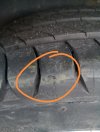 Screenshot_20221126_003400_com.android.gallery3d_edit_1076577048711244.jpg462.1 KB · Views: 95
Screenshot_20221126_003400_com.android.gallery3d_edit_1076577048711244.jpg462.1 KB · Views: 95
